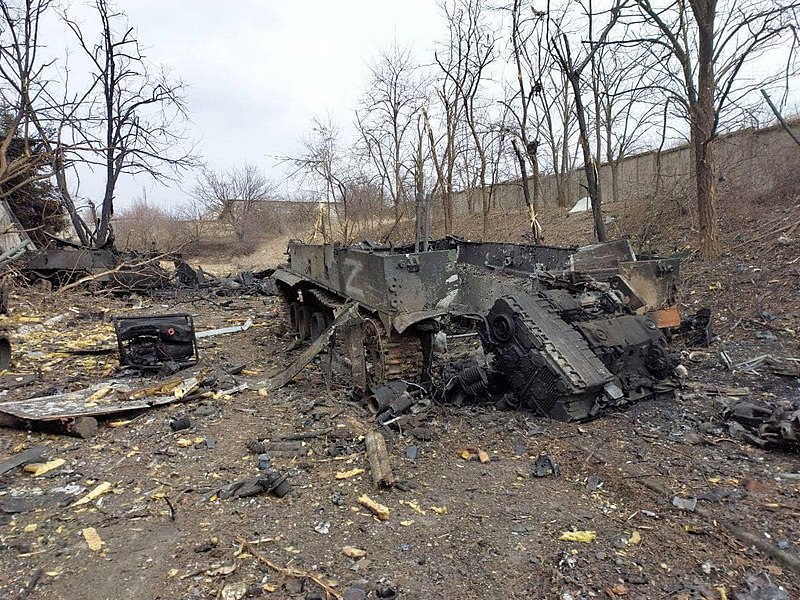Even as the world is zeroing in on holding Russian dictator Vladimir Putin and other Kremlin officials accountable, Russian lawmakers are also making their own responses to justify the ongoing crisis in Ukraine. New legislation punishing news outlets has led CNN and Bloomberg to suspend operations in Moscow.
Media outlets CNN and Bloomberg moved to suspend their respective operations in Moscow following new legislation approved by the Russian government. Putin signed into law the legislation that would punish the spread of disinformation with a maximum 15-year prison sentence.
CNN made the announcement Friday last week, saying that it will continue to assess the situation and what to do moving forward. Bloomberg announced that it was temporarily suspending receiving information from Russia.
The suspension of operations by CNN and Bloomberg follows other major news and media outlets, ABC, CBS News, BBC, and CBC/Radio Canada, who have all suspended their operations in Russia.
The new legislation signed into law by Putin also comes as Russia has earned global condemnation for its invasion of Ukraine. Many countries have imposed sanctions on Russia, including its oligarchs and their families that have benefitted from Putin’s regime. Western news networks have also banned Russian state media RT for systematic disinformation regarding the invasion.
Moscow has tried to push back, accusing the West of trying to spread disinformation and sow discord among the Russian public regarding the ongoing conflict. The Russian government has also barred international news networks and even Twitter from the country.
Meanwhile, some Asian countries are joining in the efforts to seize assets belonging to Russian oligarchs. Japan has recently imposed sanctions that targeted the assets of both Russian and Belarusian officials. Japan’s finance ministry targeted 20 Russians have been targeted, including Putin’s deputy chiefs of staff, the head of the Chechen republic, and executives with ties to the Kremlin, such as Transneft, Volga Group, and Wagner.
12 Belarusian government officials and businesspeople were also sanctioned as well as 12 organizations in both Russia and Belarus. The ministry said in a statement that payment and capital transactions with the people and organizations on the list would require a government permit.
Japan has also banned exports of oil-refinery equipment to Russia and general purpose items to Belarus that may be used for its military.



 China Warns US Arms Sales to Taiwan Could Disrupt Trump’s Planned Visit
China Warns US Arms Sales to Taiwan Could Disrupt Trump’s Planned Visit  Pentagon Ends Military Education Programs With Harvard University
Pentagon Ends Military Education Programs With Harvard University  India–U.S. Interim Trade Pact Cuts Auto Tariffs but Leaves Tesla Out
India–U.S. Interim Trade Pact Cuts Auto Tariffs but Leaves Tesla Out  Anutin’s Bhumjaithai Party Wins Thai Election, Signals Shift Toward Political Stability
Anutin’s Bhumjaithai Party Wins Thai Election, Signals Shift Toward Political Stability  New York Legalizes Medical Aid in Dying for Terminally Ill Patients
New York Legalizes Medical Aid in Dying for Terminally Ill Patients  Jack Lang Resigns as Head of Arab World Institute Amid Epstein Controversy
Jack Lang Resigns as Head of Arab World Institute Amid Epstein Controversy  Japan’s Prime Minister Sanae Takaichi Secures Historic Election Win, Shaking Markets and Regional Politics
Japan’s Prime Minister Sanae Takaichi Secures Historic Election Win, Shaking Markets and Regional Politics  Trump Signs “America First Arms Transfer Strategy” to Prioritize U.S. Weapons Sales
Trump Signs “America First Arms Transfer Strategy” to Prioritize U.S. Weapons Sales  Trump’s Inflation Claims Clash With Voters’ Cost-of-Living Reality
Trump’s Inflation Claims Clash With Voters’ Cost-of-Living Reality  Israel Approves West Bank Measures Expanding Settler Land Access
Israel Approves West Bank Measures Expanding Settler Land Access  US Pushes Ukraine-Russia Peace Talks Before Summer Amid Escalating Attacks
US Pushes Ukraine-Russia Peace Talks Before Summer Amid Escalating Attacks  Trump Backs Nexstar–Tegna Merger Amid Shifting U.S. Media Landscape
Trump Backs Nexstar–Tegna Merger Amid Shifting U.S. Media Landscape  Netanyahu to Meet Trump in Washington as Iran Nuclear Talks Intensify
Netanyahu to Meet Trump in Washington as Iran Nuclear Talks Intensify  U.S.-India Trade Framework Signals Major Shift in Tariffs, Energy, and Supply Chains
U.S.-India Trade Framework Signals Major Shift in Tariffs, Energy, and Supply Chains  Trump Administration Appeals Court Order to Release Hudson Tunnel Project Funding
Trump Administration Appeals Court Order to Release Hudson Tunnel Project Funding  Trump Allows Commercial Fishing in Protected New England Waters
Trump Allows Commercial Fishing in Protected New England Waters  Federal Judge Restores Funding for Gateway Rail Tunnel Project
Federal Judge Restores Funding for Gateway Rail Tunnel Project 































